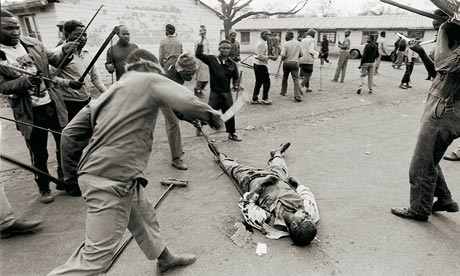On a recommendation by a fellow colleague, I have been making my through the TV series 'Justified'.
Not my usual show, and I find myself questioning how I can barrack for a protagonist who clearly acts as a the law onto himself. In that sense the show is not completely unlike Dexter, but I cannot abide that show at all! The moral grey area that inhabits does not sit well with me.
Nonetheless, Rayland, the old-school-Kentucky cowboy US marshall is an interesting character and the supporting cast is multilayered, intriguing and keeps you involved.
The show's soundtrack is (to my ears) true Southern country, but this particular song - You'll Never Leave Harlan Alive - caught my ear. Harlan, the town wherein the show is based, is an old coal town and this particular tune sings a sad melody around the trials of digging coal.
***
This time last year I spent a little over a month in Houston, Texas, training for work. To be honest, travelling to the 'deep south' was something I had not really grown up wanting to do but I treated it like I treat everything: an adventure and an opportunity to learn something about the way other people see the world.
I took away a number of things from the experience, there is no doubt about that. One of the most unexpected takings however, was an appreciation for country music (did I really just type that?!). It was the first time I had spent time around people who listened to country regularly (almost exclusively!) and what was the draw card? The songs were about the lives, loves and dramas of life. There seemed to be a depth to the music that is not always present in the top 40 pop charts, and so I began to appreciate, just a little...
***
But the times got hard and tobacco wasn't selling And ole granddad knew what he'd do to survive He went and dug for Harlan coal And sent the money back to granny But he never left Harlan alive
***
Something about the song struck a note. Our parents, their parents, generations before us knew, seem to have known that life was hard and just worked through it, fighting for better but accepting that was how life was. The obsession with 'happiness' played itself out a little differently. Art and music of those days are drenched with tales of woe and sacrifice. What my own parents did, in leaving Sudan and traveling to the other side of the world! for the future of their children - that level of sacrifice is unimaginable.
So the question is this: is our generation different? Are we so caught up as a society in the pursuit of our own happiness that the level of sacrifice we have seen is no longer, or are we going to be alright? What does this mean for us as communities?
Only time will tell...




